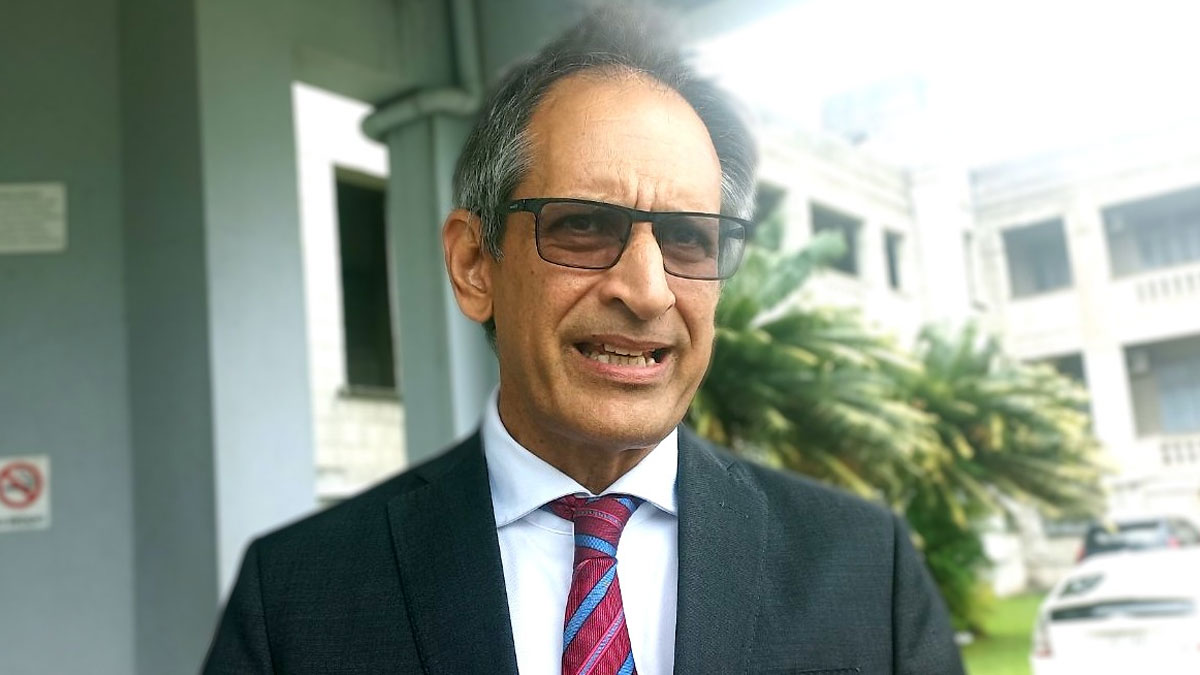
The Fiscal Review Committee chaired by prominent lawyer, Richard Naidu says that the question of Parliamentarians’ pay needs to be revisited with a proper public consultation and independent evaluation process.
In a letter to Deputy Prime Minister and Minister for Finance, Professor Biman Prasad, the Fiscal Review Committee says public confidence in the quality of Government administration is critical to achieving its economic objectives.
It says citizens will not support Government initiatives or align their energies with them – whether as investors, volunteers, public servants or even taxpayers if they do not believe that the Government is working effectively and productively in the nation’s interest.
The Richard Naidu led Committee says in their view, the broad public sense is that the Government is not working to full capacity - or particularly productively.
They say the recent saga over Parliamentary pay rises, which the Prime Minister himself acknowledges was poorly managed, was another dent in public confidence.
It says issues such as frequent foreign travel by Government Ministers, while not fiscally insignificant, have an outsize impact on public perceptions of the productivity and accountability of the Government.
The Committee says conversely, if the Government could show improvements in discipline in these politically sensitive areas it could have a significant positive economic impact.
The Committee encourages the Government to make serious and demonstrable commitments to reduce expenditure on Government Ministers’ travel and perquisites.
Overall, the Committee believes that the Government’s decisions in the 2023-24 National Budget to significantly increase taxes, in particular corporate tax and VAT, were bold and necessary.
They say the tax measures did not conform exactly with the Committee’s specific recommended measures but they were in the Committee’s view appropriate in principle.
The Committee says they responded to the urgent need to properly fund Government operating and capital expenditure, particularly infrastructure, where there is serious “catching up” to do on water and sewerage, roads and bridges, hospitals and health centres and other critical facilities such as school buildings, avoid large deficits and create a “fiscal buffer” to enable Government to respond to future shocks such as major weather events, stabilize and begin to reduce the critical Government debt to GDP ratio.
The Committee says this is a critical indicator of the Government’s financial health and its ability to finance future necessary capital expenditure to drive economic growth and improve social outcomes.
They say these demands on the Government remain and they will not be resolved overnight.
The Committee says these will remain a challenge in the next decade, probably longer.
They say this means that the Government must “stay the course” and it must also build political consensus so that future governments, not necessarily of the same political party makeup, stay committed to this approach.
They believe that the Government can be commended for significantly improving the political environment to allow greater economic dialogue and debate (and with it, criticism) on key economic issues.
They add a National Economic Summit was successfully concluded last year (although it has yet to produce any ongoing work).
The Naidu led Committee says the joint appearance of the Minister of Finance and the Leader of the Opposition at a recent economic forum offers a glimpse of how political consensus can be built on critical economic issues.
It adds thhe new National Development Plan will provide further opportunities for citizens to participate in discussions on a future national economic vision and critical priorities.
They also commend the Government for improving policy transparency by early signaling of future tax and revenue policies and promising stable and consistent application of those policies as confidence-builder for investors and consumers.
The Committee says civil society has welcomed the implementation of the Citizens Budget initiative in which key Budget measures are presented in a short and accessible 12-page document.
They add the Government has been able to report a reasonably credible “investment pipeline” of new projects promoted by both foreign and domestic investors.
However, they say as is always the case with such projects, they take significant time to be implemented, meaning slower impacts on economic growth at a time when stronger economic growth is needed.
The Committee highlights that investor complaints about poor public sector bureaucracy and regulation persist.
It adds Government continues to be challenged by a perception that it does not make investment or ongoing business easy.
The current members of the Fiscal Review Committee are Richard Naidu (Chair), Lisa Apted (Deputy Chair), Riyaz Ali, Vani Catanasiga, Edwin Chand, Neelesh Gounder, Matelita Katamotu, Fantasha Lockington, Kirti Patel, Pradeep Patel, Naibuka Saune and Viliame Takayawa.
Stay with us as we will have more on the budget submission by the Fiscal Review Committee.
Click here for more stories on the Ministers and MPs Salary Increase Issue
Click here for more Budget 2024-2025 stories
Stay tuned for the latest news on our radio stations

